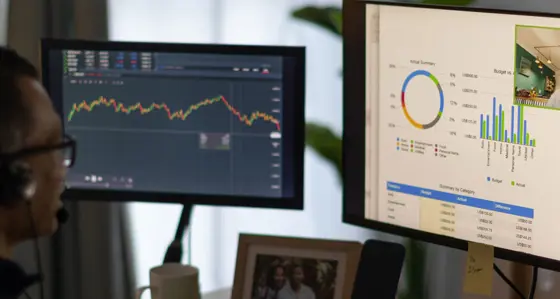
Richer data poised to become the pre-condition for cross-border payments to thrive
10 September 2021
The Global Treasurer article, “Richer data poised to become the pre-condition for cross-border payments to thrive," quotes Baringa's Ben Matthews and Tom Patience on the ISO 20022 migration. The article is excerpted below.

Data gained through ISO 20022 migration will impact corporate efficiency at different levels
Data is fast becoming a crucial enabler of faster and more frictionless cross-border payments. As payments become more commoditised, the ability to tap into data that accompanies payments is becoming increasingly important for compliance and reconciliation.
ISO 20022 expected to boost efficiency on different fronts
Inquiries and debates about the use cases and benefits of ISO 20022 have accelerated among corporate clients, said Ben Matthews, partner at Baringa Partners.
“The conversations we have with clients around international cross border are almost all ISO focused,” he said. “They’re looking at how richer data can be used to drive insight, better propositions and ultimately better revenues and greater profits.”
SWIFT has already seen a successful rollout of SWIFT gpi, which accounts for nearly 60 percent of the cross-border payments the correspondent banking network processes. It boasts that more than 50 percent of transactions are credited within 30 minutes.
Having accelerated the speed of payments, the group now looks to tackle the data question with ISO 20022 migration, set to start next year. This will ultimately phase out the older MT messaging standards by the end of 2025.
******
Preparing for ISO: regulators’ role
Overall, adopting richer messaging standards is not an easy process. Tom Patience, a director at Baringa, described the transition to ISO 2022 akin to learning a new language.
“Your whole business has been built around MT messaging. You’ve got a brand-new language to use now. It takes time to learn, get comfortable with, correspond in and then finally start to use it to its fullest.”
For firms that have already transitioned to SaaS and cloud-based ERPs, APIs are the way forward for them in their ISO 20022 migration, said Matthews. Many ERP and TMS solutions are already prepared or preparing for the new messaging standard.
He added that those corporates with more legacy tech will need to support from their tech providers.
“The more established institutions, which have a mix of old/new [on-premise] tech, will need to work more closely with their tech provider.”
Increased data however, is also a two-way street: if one party is providing more data on a transaction, there will be an expectation of reciprocity.
“Do I actually want to share all that data with other people? Because it’s mine and quite rich and insightful,” said Patience.
“If I do share data, then I expect to also receive similar data. It becomes a balance of ‘how much do you share versus how much do you keep to yourself’, with payment regulators playing an important role on mandating the ‘bare minimum’ and client expectations driving the rest,” he said.
Access the full article here.
Related Insights

Navigating sustainable retrofit in real estate
Achieving successful sustainable retrofitting in real estate can seem like a complex challenge. Discover how your organisation can unlock the strategic value of retrofitting with our new report, commissioned by Barclays and in collaboration with JLL, Travis Perkins and TrustMark.
Read more
Typify™ - more accurately detecting Financial Crime
Typify, Baringa's investigation and analytics product, creates a fit for purpose solution that is easy to use and implement.
Read more
An introduction to Typify™
Typify™accurately pinpoints the atypical by combining an understanding of typical customer and peer group behaviour with insight from financial crime experts. This enables financial institutions to manage financial crime effectively and efficiently, reducing the need for large and expensive teams of investigators.
Read more
Typify™ - financial crime typologies identified
Transaction monitoring is key to detecting suspicious financial activity. However, this is not 100% accurate. Baringa’s Typify offers a tailored solution.
Read moreIs digital and AI delivering what your business needs?
Digital and AI can solve your toughest challenges and elevate your business performance. But success isn’t always straightforward. Where can you unlock opportunity? And what does it take to set the foundation for lasting success?